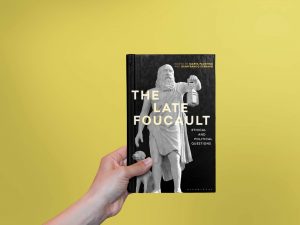The Art of Living Research Group, created in 2018, is dedicated to the study of the relationship between philosophy, life and the creation of values and forms of life. As part of the CultureLab, the group’s overarching research is focused on the relationship between value and culture and the various ways in which human values and the activity of valuing are always embedded in cultural forms of life, which have a particular context and history. The group is especially concerned with the history, development and contemporary relevance of philosophy conceived as an “art of living”, and its impact on social practices and value construction at ethical, political, artistic and cultural levels. Forged by top-level researchers specialized in Ancient Philosophy, Contemporary Thought and the Philosophy of the Anthropocene and/or Capitalocene, the group aims to bring together ancient and contemporary approaches to the problem of “how to live” and interconnected practices of self-transformation and value construction, along three different, although interrelated, lines of research:
- The study of the original conception of philosophy as an “art of living” (technē tou biou / ars vivendi), a “way of life” (Hadot) or a “care of the self” (Foucault) and corresponding spiritual exercises in Ancient thought (especially in Plato, Aristotle and the Hellenistic schools).
- The investigation of modern and contemporary philosophical – but also literary – reinventions of the “art of living” and related concepts of “authenticity”, “freedom” and “self-creation” (particularly in Schopenhauer, Nietzsche, Foucault, and authors pertaining to the existential tradition, such as Kierkegaard, Heidegger and Sartre).
- The exploration of the relevance of philosophy conceived as an “art of living” in the face of contemporary challenges (such as the excessive technologisation of life, the environmental crisis, trans- and posthumanism, gratuitous violence, emigration and the refugee crisis) that call for the interaction of scientific and technological development with philosophical wisdom and innovative ethical ways to behave and act as a human being in a collapsing world today.
Antonio Cardiello
António de Castro Caeiro
Bartholomew Ryan
Fábio Serranito
Giovanbattista Tusa
Gianfranco Ferraro
Hélder Telo
Luís Aguiar de Sousa
Paulo Lima
Pietro Gori
Matteo Johannes Stettler
Philip Farah
Vittorio Lubrano




